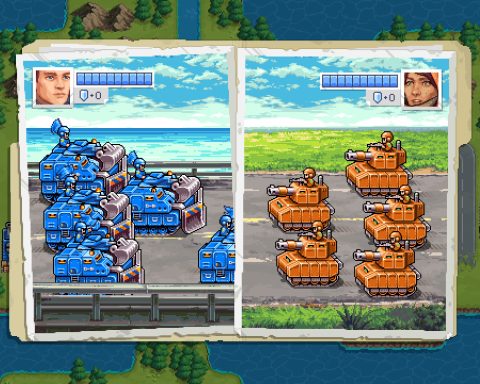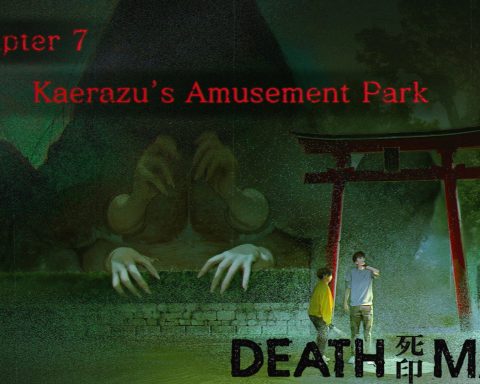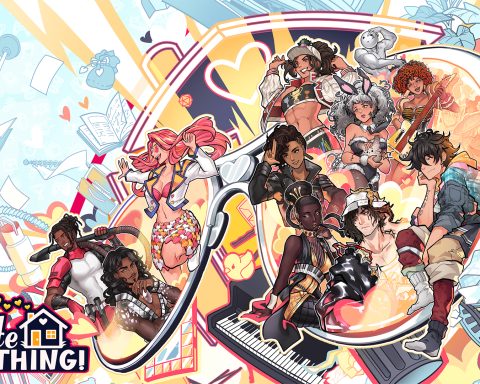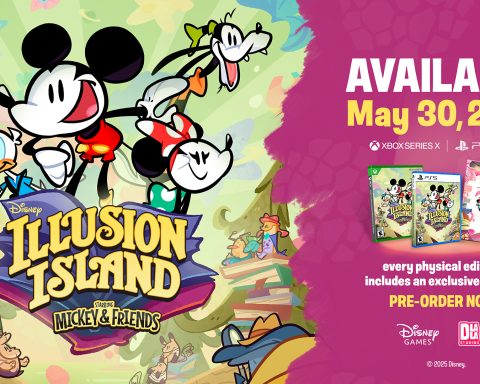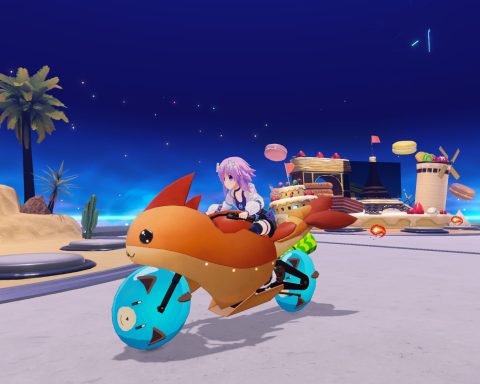 Opinion by Matt S.
Opinion by Matt S.
Everyone likes a top-10 list. They’re a bit of fun, and always good for discussion. And so every so often we pull together a “top 10” list. These are here for fun and laughs – we’re not pretending that we’re the authority of good games taste in the world and this is purely the author’s preferences. Agree with him/ her or not, it’s all good.
We’d love to hear your own personal preferences in the comments below the list. But please do be civil. We’re all friends here!
I’ve come to the realisation that in the nearly 5,000 articles that DDNet has published over four years that not once have I done a list as simple as “my favourite games of all time.” And so that’s what I’m doing now.
This list is my pure, unfiltered, subjective opinion based on no other criteria than “what games mean something to me.” There’s no great thinking that’s gone into the list, and I’m well aware that I have some very eclectic tastes in games. I’m being indulgent, but hey, it’s Friday!
Obviously I’d very much like to hear your own lists, or what you think of the games on mine. Let’s see if against all odds there’s some kind of weird person that shares my taste in games out there!
And without further adieu;
As in the first one. Not the second (although the second is good too). As a nerdy kid that was a fan of Dungeons & Dragons for basically as long as he’d been reading, I had spent more time struggling with heartfelt-but-buggy SSI Dungeons & Dragons games than I care to recount. Then I discovered Baldur’s Gate, which had a massive, truly open world with new things to discover every time I played. It had awesome characters (especially Minsc), stunning fantasy art for the time and it was spread across FOUR DISCS.
I’ve lost count of the number of times I’ve played Baldur’s Gate. And yet I feel like I could still happily spend a week playing it through yet again, even today.
Persona 4 is the greatest turn-based JRPG that has ever been developed. But not for the gameplay. Oh no. Persona 4’s gameplay is perfectly function, but nothing awe-inspiring. Where Persona 4 really hooked its claws into me was in its characters and the relationships that they built between them. It’s rare that a game is written so well that every major and minor character is one that you can connect with, but it really happened here – every single character was memorable and maturely written to maximise the emotional connection that I had with them.
The game had plenty of humour too, and despite being around 80 hours long, was paced just perfectly. It’s also worth multiple replays, because it has a great deal of academic depth for philosophy nuts like myself. I’m not the kind of person that believes that there is such a thing as a “perfect” game, but Persona 4 gives that term a run for its money.
Danganronpa: Trigger Happy Havoc
As I just mentioned, I’m a nut for philosophy. Danganronpa does my head in and I love it for it. From game theory to Schrodinger’s Cat, from absurdism to nihilism there’s any number of readings that you can make about Danganronpa, and as such it’s a rare example of a game that I would argue deserves to be treated like literature.
I’m a busy guy these days, and not getting younger – the idea of being up until 5am to play a game is something I get nostalgic for, but rarely find myself doing. I did that with Danganronpa. It was so dense and so compelling that I made myself a big pot of coffee and knocked this 30-hour game over in a weekend. I didn’t really have the time to do that, but I made the time for it.
Warhammer: Shadow of the Horned Rat
When I wasn’t playing Dungeons & Dragons as a kid, I was playing Warhammer, and Warhammer: Shadow of the Horned Rat is one of the very, very few games that has done the fantasy strategy game justice. For me Warhammer was always about building unique armies, giving leaders personalities, painting miniatures and owning the army I fielded on the battle, and Shadow of the Horned Rat enabled all of that. Branching paths meant the story would change based on my decisions, and I would end up with different armies to take to battle. Units had names and personalities and would accumulate experience as they fought – giving them a sense of development.
It has been so disappointing to me that in recent years Warhammer games have degenerated into MMOs, space-action games and so on, because to me they should all be just like this. With any luck there’s a Total War: Warhammer at some stage, because that’s where the series should be at.
Dark Sun: Wake of the Ravager
As buggy as SSI’s Dungeons & Dragons games were, I stuck with them, because the vision outweighed the issues, and Wake of the Ravager was my favourite.
Set in a brutal wasteland of a world, where people struggle to eke out an existence under the whips of violent, evil dragons, Wake of the Ravager was a survivalist RPG with branching paths and narratives – it was way ahead of its time.
I remember in one scene where a hidden society that was fighting against the evil was invaded by the dragon’s forces. It was a tough fight, to be sure – especially if I tried to save every person I could (because every person I saved would continue to be in the game forever more). On one play through my team was badly injured, so I left the headquarters to heal quickly and return. By the time I got back the headquarters was ruined and infested by the undead reincarnations of my former allies. At yet the game continued on, just minus the resources and aid that the society had provided me. At a time when most games were brutally linear, with a “game over” accompanying a bad decision, this narrative freedom blew my childhood mind.
This was my first Final Fantasy game that I owned. To explain: most Final Fantasy games from the NES and SNES era were not released in Australia. And then when the PlayStation 1 came along I owned a Nintendo 64 instead. It was only when I started working that I was able to buy myself a PlayStation 2, and after hearing such great things about this Final Fantasy series from my friends who had played VII, VIII and IX, I figured it was worth giving X a go.
I think the fact I’ve played every Final Fantasy game before and since can be attributed to the impact that X had on me. Here was a beautiful world with a great group of characters on a state-of-the-art console, with incredible music and an awesome, strategic combat system. In fact, were it not for this game, I sometimes wonder if I would have become a fan of JRPGs at all – I was a Western RPG and Nintendo game dude before this.
Nier
Everyone who knows me knows how much I rave on about Nier, but it really is a game I hold very dear to me. The art aesthetic is dark, but eerily beautiful, and the music is haunting. The fact that the game cleverly weaves so many different genres together into a single open world-style experience was also something I found fascinating. From bullet hell to text-based adventure, Harvest Moon to platformer, Nier offered a bit of everything, and it did so within the context of an edgy, dark and intelligent narrative.
I like games that make me think as much as games that entertain me. Nier made me think about a lot of things. I’m not sure if it was just the place I was in when I played the game for the first time, but its downbeat themes was something that I connected with at the time, and I continue to study to this day.
King’s Field IV
I love the Souls games. Especially Demon’s Souls. I love King’s Field IV, which was developed by many of the same people, much more.
See, King’s Field IV is more raw than the slick and balanced Souls games. King’s Field IV doesn’t give players a second chance – if they accidentally walk past a hidden save statue and run into a boss that kills them, they need to reload the game and re-trace a couple of hour’s progress. This made the sense of hostility and danger even more pronounced in King’s Field. And I loved it because it made me dread what was coming up next. It made me cautious. It slowed me down, and because it slowed me down I experienced more of the world than I do in most games that I run through without a second thought.
Because King’s Field IV was an oddly beautiful game that demanded players pay attention to what you’re not seeing as much as what you are. Labyrinths were intricately designed to be filled with secrets and offered plenty of environmental storytelling, where I would find myself asking about how the crumbling ruins and rotting forests came to be that way. Before Dark Souls did indirect storytelling so well, King’s Field IV was already on the case and it was a brutal, intense, dark but ultimately intelligent game which has sadly been all-but forgotten.
Samurai Warriors 3
Believe it or not, Samurai Warriors 3 was my first Warriors game. For years I had been put off by the horrible reviews these games got, and it was only after no one else volunteered to write a review of this plucky Wii game that I was forced to sit down and play it.
I’ve now played around 30, if not more Warriors games, which should tell you how much I enjoyed my 150+ hours in Samurai Warriors 3. But it was more than that. Samurai Warriors 3 also inspired me to learn more about Japanese history – the battles and characters that were fighting in the game were as interesting to me as the actual action. I’ve got a shelf of books about Sengoku-era Japan thanks entirely to this game.
There are Warriors games that probably play better than Samurai Warriors 3 in an objective sense, but this game literally changed my life – it gave me a deep and permanent interest in Japanese history and “discovered” for me a new favourite series of games.
Civilization 2
Everyone has their own favourite Civilization game. For me, it’s the second. Here is a game that for its time had unprecedented depth, allowing players to take command of a culture and develop it from the primitive ages right through to a modern society. It was a game that offered multiple different ways to achieve victory – be that winning the space race or achieving world domination, and it was a game that was so strategically difficult on the high difficulty modes that to this day I wonder if it’s even possible to win on them.
But Civilization 2 was also more than just a game. It had the most amazing unanimated little sprites that represented playing pieces. It had incredible depth of research that had gone into creating videos to represent each of the great wonders that players could build. It was a complex game, but also one that had a “just one more turn” appeal to it that meant I could play it for hours or days at a time.
– Matt S.
Editor-in-Chief
Find me on Twitter: @digitallydownld












